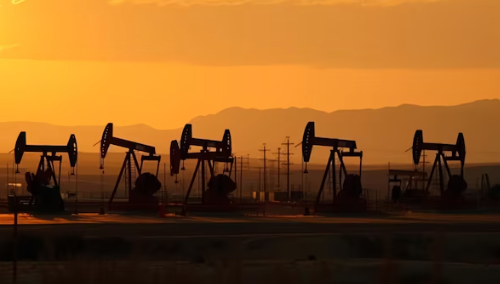$OIL $BRENT #OilMarket #GlobalEconomy #NetZero #ClimateChange #EnergyCrisis #Geopolitics #OPEC #SustainableEnergy #ProductionBoost
Why Is Everyone Silent About the Latest Oil Boom? Discover What’s Really Happening!
The News Unveils a Global Conundrum
As the world grapples with the complexities of achieving net-zero emissions amid ongoing geopolitical upheavals and market volatility, a surprising trend is emerging. Despite the urgent calls for renewable energy solutions, several oil-rich nations are not only maintaining but significantly increasing their oil production. This development spans across diverse regions from the Middle East to Africa, South America, and even Europe, revealing a multifaceted scenario of economic and strategic decisions.
A Closer Look at the Major Players
The United Arab Emirates (UAE), a heavyweight in the OPEC group, is spearheading this unexpected surge. The nation is not just looking to amplify its output in the short term but is strategically enhancing its production capabilities to cement its stance as a global oil titan. Similarly, other nations scattered across key geographical locations are also planning substantial increases in their oil outputs.
Economic Implications and Strategic Motivations
This intensified focus on oil production raises critical questions about the balance between economic gains and environmental responsibilities. For these countries, oil is not only a major economic pillar but also a tool of geopolitical influence, which complicates the global transition to greener energy sources. Furthermore, the economic allure of oil remains potent, offering substantial fiscal revenues and employment opportunities, thus making the shift to alternative energy sources a tougher sell both domestically and internationally.
The Environmental Dilemma and Market Dynamics
The environmental implications of this trend are profound. As more nations boost oil production, the challenges in mitigating climate change escalate, potentially derailing efforts to limit global warming to the agreed international targets. Additionally, this move impacts global oil prices and market stability, creating a complex web of supply and demand dynamics that investors and policy-makers must navigate.
What Lies Ahead?
Looking forward, the actions of these oil-producing countries are likely to have lasting impacts on both the environment and the global economy. The dual need for economic stability and environmental sustainability continues to pull these nations in opposite directions. As the global community watches, the decisions made today will shape the geopolitical and environmental landscape for years to come.
In conclusion, the current oil production boom highlights a critical juncture in global energy politics. While the economic benefits are clear, the long-term environmental costs are a cause for concern, making this an issue that deserves more attention and dialogue than it currently receives. As stakeholders in a globally interconnected market, the path forward requires careful consideration and cooperative strategies that align economic goals with sustainable outcomes.











Comments are closed.